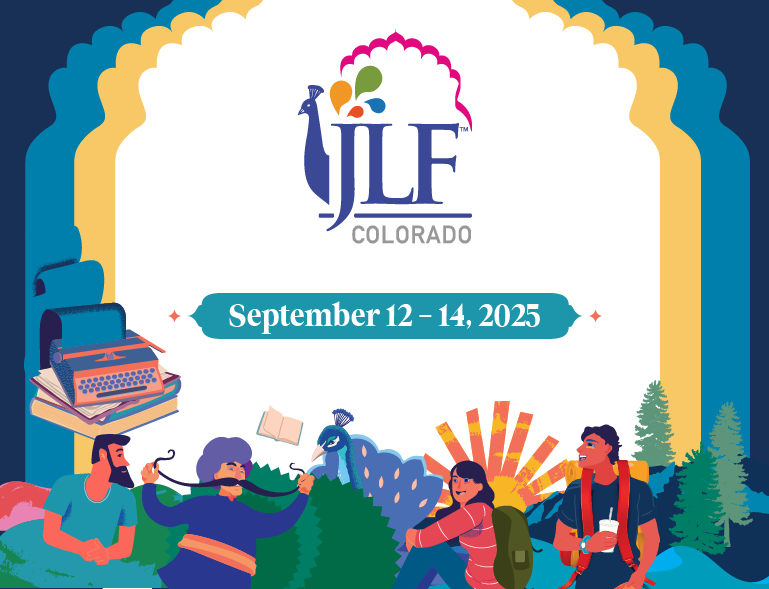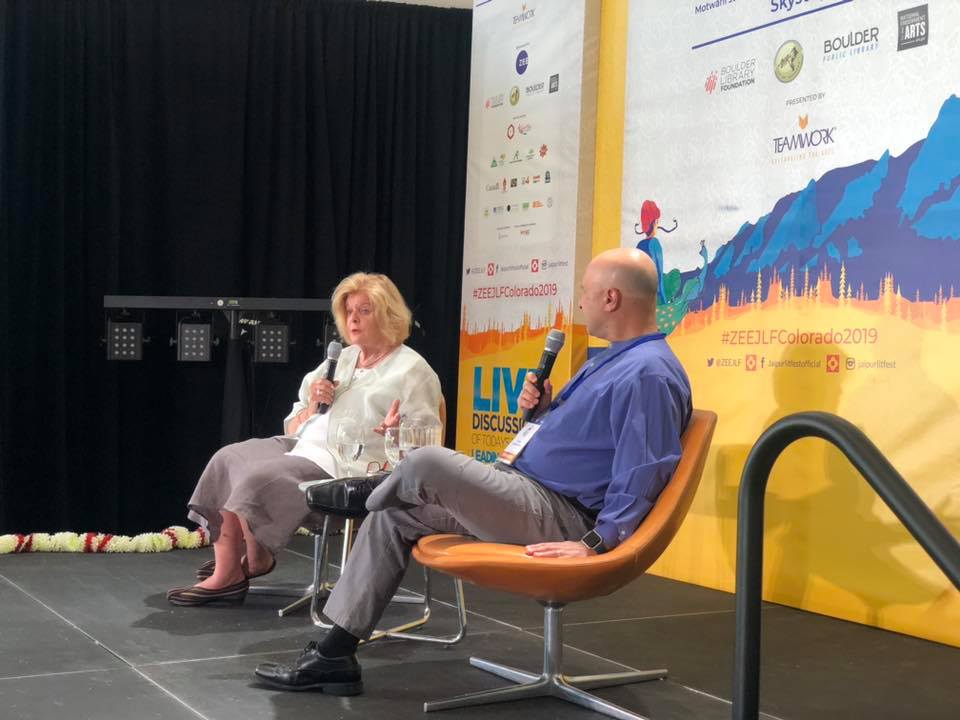


A Reckoning: Linda Spalding in conversation with Arsen Kashkashian, introduced by Stéphane Lessard, Consul General of Canada in Denver
At JLF Colorado, Linda Spalding spoke about her novelistic journey into her own family which began when she discovered that her paternal ancestors, who she’d known were Quakers, had nonetheless owned slaves.
“I couldn’t figure out how those things could have been reconciled,†the writer told the audience. “It’s something to think about, if we have that in our family… and even if not, we are all complicit in it.â€
Delving into that launched her into her novel ‘The Purchase’, which won Canada’s top national award. Through a tremendous effort of research and imagination, she brought her own ancestors to life: the Dickinsons, a family with 7 small children who moved into the woods of southwest Virginia and became slave owners, eventually clearing a cotton farm of 3,000 acres.
‘A Reckoning’, her sequel set 40 years later, details the next segment of their history, when an abolitionist comes to the plantation and helps the slaves escape. The family, bereft, begins to break down as it heads west to Kansas in a Conestoga wagon.
Her interviewer, Arsen Kashkashian, general manager of the Boulder Bookstore, brought details of the book to light: the narrative’s deft switching between slave and free characters, a segment set on a river trip down the Mississippi, and a bear named Cuff kept as a pet by the Dickinsons (a true story Spalding had heard growing up.)
Spalding, who grew up in Topeka before moving to Canada 35 years ago, places her characters in the context of the border states, which was the scene of tremendous upheaval between slave and free societies, decades before the Civil War broke out. The large French-speaking community in Saint Louis is featured, as well as the multiple Native populations there.
Another detail that surprised Spalding was the river traffic itself and the role of steamboats. “These were really big boats,†she said. As a part of the migration out west, her ancestors would have had to load a Conestoga wagon onto a steamboat with their entire herd of animals. Powered by coal, the boats often exploded and sank.
An author of non-fiction as well, Spalding said that one thing she has confronted in her fiction writing process is the complexity of representing characters of different genders and races.
“Writers have to have tremendous amounts of empathy,†she said. “If we cannot put ourselves into other times and places and shoes, we shouldn’t be writing. That’s what we’re here for. That’s what our brains want to do.â€
Spalding also highlighted her adopted Canada as having a vastly different legacy than the United States. “We don’t have such a history of slavery. It was brief, and outlawed in 1830s. There was never a plantation system.†In fact, she opened her talk by describing Canada – the terminus for many on the Underground Railroad - as a “place of refugeâ€.
One modern-day parallel brought up by an audience member was about the morality of economics. In Spalding’s novels, the family becomes impoverished after their slaves escape to freedom; the audience member commented that it reminded her of oil and gas workers who earn a living from fracking.
“I’ve never heard that parallel. But yes- there has got to be more ways of people being able to work,†said Spalding. “If something is wrong, just because it feeds you – it’s still wrong.â€



Leave a comment